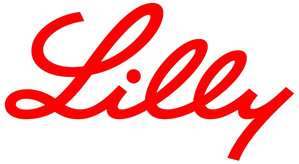INDIANAPOLIS and RIDGEFIELD, Conn., July 10, 2017 /PRNewswire/ -- Popular television host and legendary entertainer, Don Francisco, is joining Lilly and Boehringer Ingelheim to launch a new awareness initiative, Basado en Hechos, to help address common misconceptions about type 2 diabetes and insulin treatment.
As part of this partnership, Don Francisco, who is known for his ability to connect with his audiences and inform them of the important issues of the day, will head to cities across the country to share his own personal journey of living with type 2 diabetes. These conversations will help to educate communities on some of the facts about type 2 diabetes.
"I was diagnosed with type 2 diabetes 16 years ago, and at that time I believed many things about diabetes that weren't correct. These misconceptions prevented me from making the best decisions for my health," states Don Francisco. "I joined the Basado en Hechos initiative to share what I've learned over the years with the 3.2 million Hispanics in the U.S. living with diabetes.1 Together, we can learn about the condition."
Today, Don Francisco has learned to manage his type 2 diabetes daily through medication and healthy lifestyle habits, allowing him to stay active and include the foods he loves in his meal plan.
"As a Hispanic healthcare professional who has worked within our community for many years, I've seen many patients who are hesitant to start insulin due to misconceptions about insulin treatments and diabetes management. One worry is that they will have to overhaul their lifestyle," states Dr. Frank Lavernia, Founder and Director of the North Broward Diabetes Center, Pompano Beach, FL. "Diabetes is a progressive condition that can change over time, requiring adjustments in a person's treatment plan. For many, this could include incorporating a once-daily insulin into their treatment regimen. I encourage people in our community to have an open conversation with their own healthcare providers to learn the facts about diabetes and make informed choices that may be best for their health."
Hispanics with type 2 diabetes are approximately 1.5 times less likely to adhere to insulin therapy than non-Hispanic white patients2, further evidence of the importance of being informed about type 2 diabetes and available treatment options.
"The Hispanic community is disproportionately affected by diabetes – the prevalence of total diabetes (diagnosed/undiagnosed) among all Hispanic/Latino groups in the U.S. is 16.9%, compared to 10.2% for non-Hispanic whites adults3 – so diabetes education in the Hispanic community is crucial," said Dr. Dara Schuster, Senior Medical Director at Lilly. "We are proud to partner with Don Francisco – someone who is incredibly passionate about the cause and deeply connected to the Hispanic community – to help us dispel myths and provide facts to those with diabetes, their caregivers and families so they can make informed decisions about their health and treatment plans."
Through the Basado en Hechos initiative, Don Francisco encourages people living with type 2 diabetes to start a conversation with their healthcare provider about available treatment options.
To learn more about additional misconceptions about diabetes and insulin, as well as information about a diabetes treatment, people should visit www.basadoenhechos.com.
About Diabetes
Approximately 29 million Americans4 and an estimated 415 million people worldwide5 have diabetes, and nearly 28 percent of Americans with diabetes — totaling eight million people — are undiagnosed.4,5 In the U.S., approximately 12 percent of those aged 20 and older have diabetes4. Type 2 diabetes is the most common type, accounting for an estimated 90 to 95 percent of all diagnosed adult diabetes cases in the U.S.4 Diabetes is a chronic condition that occurs when the body either does not properly produce, or use, the hormone insulin.
Boehringer Ingelheim and Eli Lilly and Company
In January 2011, Boehringer Ingelheim and Eli Lilly and Company (NYSE:LLY) announced an alliance in diabetes that centers on compounds representing several of the largest diabetes treatment classes. The alliance leverages the strengths of two of the world's leading pharmaceutical companies. By joining forces, the companies demonstrate commitment in the care of patients with diabetes and stand together to focus on patient needs. Find out more about the alliance at www.boehringer-ingelheim.com or www.lilly.com.
About Lilly Diabetes
Lilly has been a global leader in diabetes care since 1923, when we introduced the world's first commercial insulin. Today we are building upon this heritage by working to meet the diverse needs of people with diabetes and those who care for them. Through research and collaboration, a broad and growing product portfolio and a continued determination to provide real solutions—from medicines to support programs and more—we strive to make life better for all those affected by diabetes around the world. For more information, visit www.lillydiabetes.com.
About Eli Lilly and Company
Lilly is a global healthcare leader that unites caring with discovery to make life better for people around the world. We were founded more than a century ago by a man committed to creating high-quality medicines that meet real needs, and today we remain true to that mission in all our work. Across the globe, Lilly employees work to discover and bring life-changing medicines to those who need them, improve the understanding and management of disease, and give back to communities through philanthropy and volunteerism. To learn more about Lilly, please visit us at www.lilly.com and www.lilly.com/newsroom/social-channels.
About Boehringer Ingelheim
Boehringer Ingelheim Pharmaceuticals, Inc., based in Ridgefield, CT, is the largest U.S. subsidiary of Boehringer Ingelheim Corporation.
Boehringer Ingelheim is one of the world's top 20 pharmaceutical companies. Headquartered in Ingelheim, Germany, the company operates globally with approximately 50,000 employees. Since its founding in 1885, the company has remained family-owned and today creates value through innovation for three business areas including human pharmaceuticals, animal health and biopharmaceutical contract manufacturing.
Boehringer Ingelheim is committed to improving lives and providing valuable services and support to patients and their families. Our employees create and engage in programs that strengthen our communities. Please visit our website to learn more about how we make more health for more people through our Corporate Social Responsibility initiatives.
In 2016, Boehringer Ingelheim achieved net sales of about $17.6 billion (15.9 billion euros). R&D expenditure corresponds to 19.6 percent of its net sales.
For more information please visit www.boehringer-ingelheim.us, or follow us on Twitter @BoehringerUS.
P-LLY
CONTACT:
Dani Barnhizer
Lilly Diabetes
Email: [email protected]
Phone: (317) 607-6119
Christopher Wahlers
Boehringer Ingelheim Pharmaceuticals, Inc.
Email: [email protected]
Phone: (203) 798-4375
PP-LD-US-1128 06/2017 ©Lilly USA, LLC 2017
References:
- Centers for Disease Control and Prevention. Summary Health Statistics for U.S. Adults: National Health Interview Survey, 2012. Atlanta, GA: U.S. Department of Health and Human Services; 2014.
- Campos, C. (2007). Addressing Cultural Barriers to the Successful Use of Insulin in Hispanics With Type 2 Diabetes. Southern Medical Journal. Retrieved April 27, 2017, from http://www.medscape.com/viewarticle/561831
- Diabetes Among Hispanics: All Are Not Equal. (n.d.). Retrieved April 26, 2017, from http://www.diabetes.org/newsroom/press-releases/2014/diabetes-among-hispanics-all-are-not-equal.html?referrer=https%3A%2F%2Fwww.google.com%2F
- International Diabetes Federation. IDF Diabetes Atlas. 7th ed. Brussels, Belgium: International Diabetes Federation; 2015. Retrieved on April 27, 2017, from http://www.diabetesatlas.org/resources/2015-atlas.html.
- Centers for Disease Control and Prevention. National Diabetes Statistics Report: Estimates of Diabetes and Its Burden in the United States, 2014. Atlanta, GA: U.S. Department of Health and Human Services; 2014. Retrieved on April 27, 2017, from http://www.cdc.gov/diabetes/pubs/statsreport14/national-diabetes-report-web.pdf.
SOURCE Eli Lilly and Company





Share this article